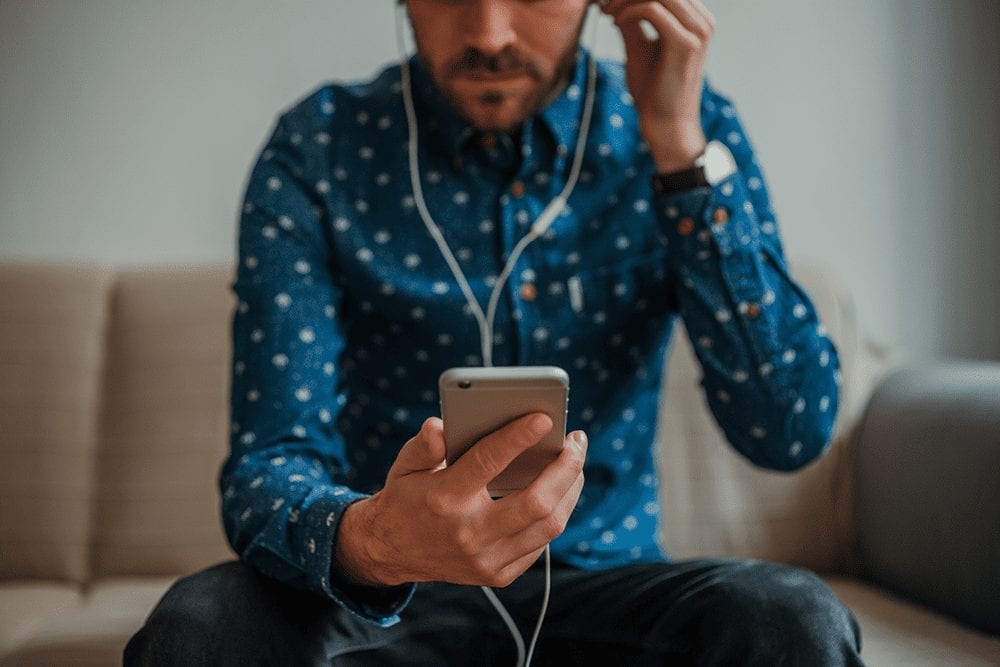Amid the coronavirus pandemic, the government is recommending social distancing to prevent the spread of the virus. It may seem relaxing to be told to hang out at home and watch TV, or not to have to worry about going to work for the many whose businesses have closed down. However, keeping yourself in isolation can change the way your brain works. Taking the necessary precautions to protect your mental health is crucial during this time. Following are the devastating effects of social distancing.
Brain Changes From Social Distancing
One study in Cell discovered that mice who were socially isolated for two weeks produced brain chemicals that made them aggressive to threats and prone to high-stress levels. Another study in Natural Neuroscience found that eight weeks of social isolation disrupted the production of myelin in parts of the brain that are associated with complex emotions. Even though we have the technology to communicate with others when we cannot be with them in person, we still face problems mentally without the social contact we crave.
Social Distancing Leads to Anxiety and Depression
When you are surrounded by people all the time, you feel a sense of safety and protection. Being separated from others for long periods can make you feel lonely and depressed. Social isolation can also increase the risks of anxiety and depression. This can make you more prone to panic and/or paranoia, as well as increase the experience of boredom, frustration, and fear. You may even have trouble figuring out who you are when your peers are not around. If your mental health issues are becoming a problem, give your therapist a call or seek online support.
Social Distancing May Lead to Rumination
Rumination is when you think the same thoughts over and over. Because you no longer have a regular schedule to follow or people to see, your brain tends to focus on worst-case scenarios. Typically during times of crisis, people have someone to turn to and lean on for support. In social distancing, however, this is not the case. Without social interaction, the only information you have is the coronavirus news coverage, which only further contributes to the cycle of fear, anxiety, and panic.
Face-to-Face Communication
Sometimes, a phone call, text message, or a social media post is not enough when you are isolated and craving social connection. When the only form of communication you have is through a screen, the need for human closeness and face-to-face contact intensifies. Still, just because we cannot visit our peers in person, does not mean that we cannot take advantage of the different communication channels available to us. Try to set aside some time to video chat with your friends, family, or even co-workers, so it feels like you are properly communicating with people even if they are not physically in your presence.
Find Meaning at Home
It is important to not spend all of your time looking up the latest updates of the coronavirus. Instead, find things to do in the house that need doing. See if there is any housework that you can complete, take care of your pets, or get started on that project that you did not have time to do before. Instead of dwelling on what is out of your control, find opportunities to keep your brain busy and explore your surroundings at home.
Support Others
While you may be feeling bad right now, chances are that there are other people you know that have it worse than you. They could have clinical depression or another mental illness that does not go well with isolation. Make an effort to connect with them in the same way you would like others to connect with you. Think about people who have loved ones that live far away from them. Send them a note or give them a call to let them know that you care. If someone got laid off or temporarily lost their job, let them know that they are not alone in that. Checking in on others will make you feel useful and show others that you care and support them.
Exercise
Just because you are stuck at home does not mean that you have to lie in bed all day. Doing that will only make you focus on the negative feelings associated with being isolated. With the gyms closed down right now, consider taking a walk around your neighborhood, walking your dog or ride your bike. The sun will provide you with mood-boosting vitamin D. Getting active and finding ways to stay moving while at home can help make social distancing a lot easier.
Long-Term Effects of Social Distancing
Humans are naturally social animals, so government enforced social-distancing and quarantine orders because of COVID-19 are not doing wonders for our mental health. Even when things start opening up and we are allowed to see people, there may possibly still be long-term mental health issues. It is important to take control of your mental health now, so you are in good spirits when you are back to seeing your friends and family.
Post-Traumatic Stress Disorder
The coronavirus pandemic is a traumatic experience for many reasons, such as a fear of catching the virus and the economic impact it has had on people. Social distancing measures can change people’s mental health, as well. There is grief that comes with social distancing, as our social lives are changing drastically. It is also traumatic to not know when this pandemic will end.
We wonder when our city will be reopened, when going back to school will start again, and when we will be able to travel again. People are still scared, even when 6-foot distancing rules are in place at public areas like grocery stores and offices.
Long-Term Mental Health Effects for Kids
Kids are experiencing a lack of proper schooling, social isolation, exposures to increased domestic violence, and a lack of proper nutrition. Kids could also be experiencing anxiety if they have a parent who is a healthcare worker or working at a grocery store on the front lines.
These kids are not growing up the way their parents did, where they can leave their homes without any risk. Now, they are told to stay home and stop seeing their friends—not because they did anything wrong, but because of a virus that is beyond anyone’s control.
Seek Help
Silver Lining Recovery is a serene outpatient care center in Huntington Beach, California, that believes in staying relaxed while receiving treatment. Our treatment programs are built on the philosophy that the most effective way to treat addiction is to find the underlying causes. Our customized treatment programs are built using individualized therapeutic modalities, including EMDR, CBT, DBT, meditation, academic and career counseling and more. Professional staff will work with you to identify your goals and create a plan that will best help you achieve them. For more information, please call us at 866-681-0927.







